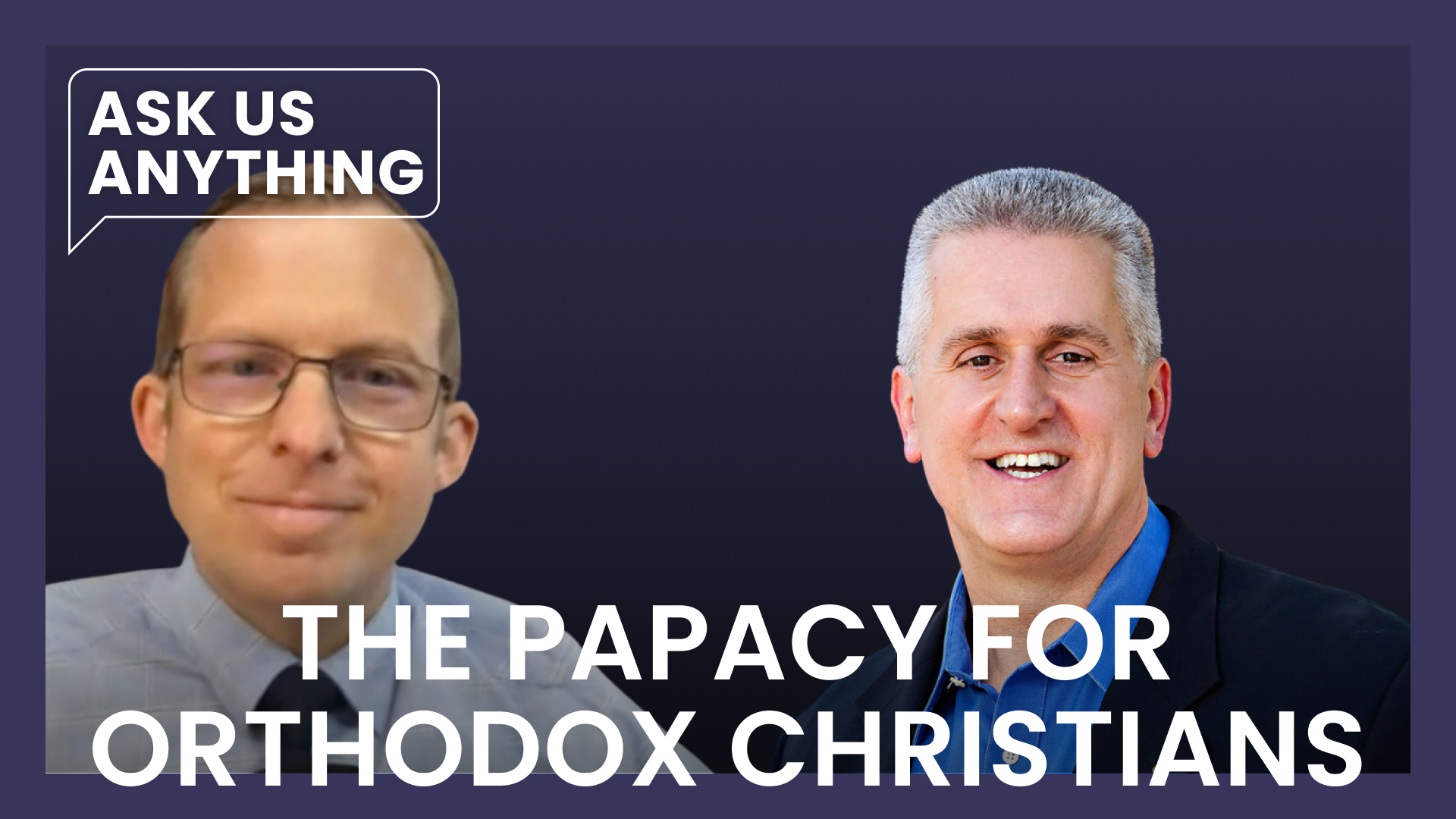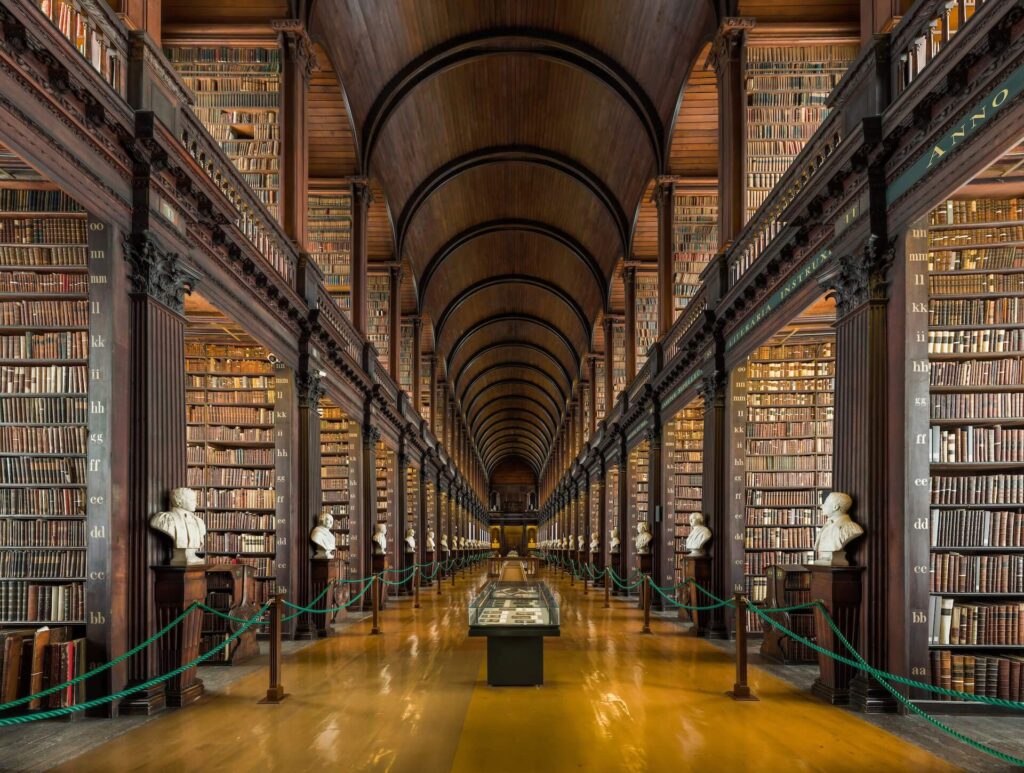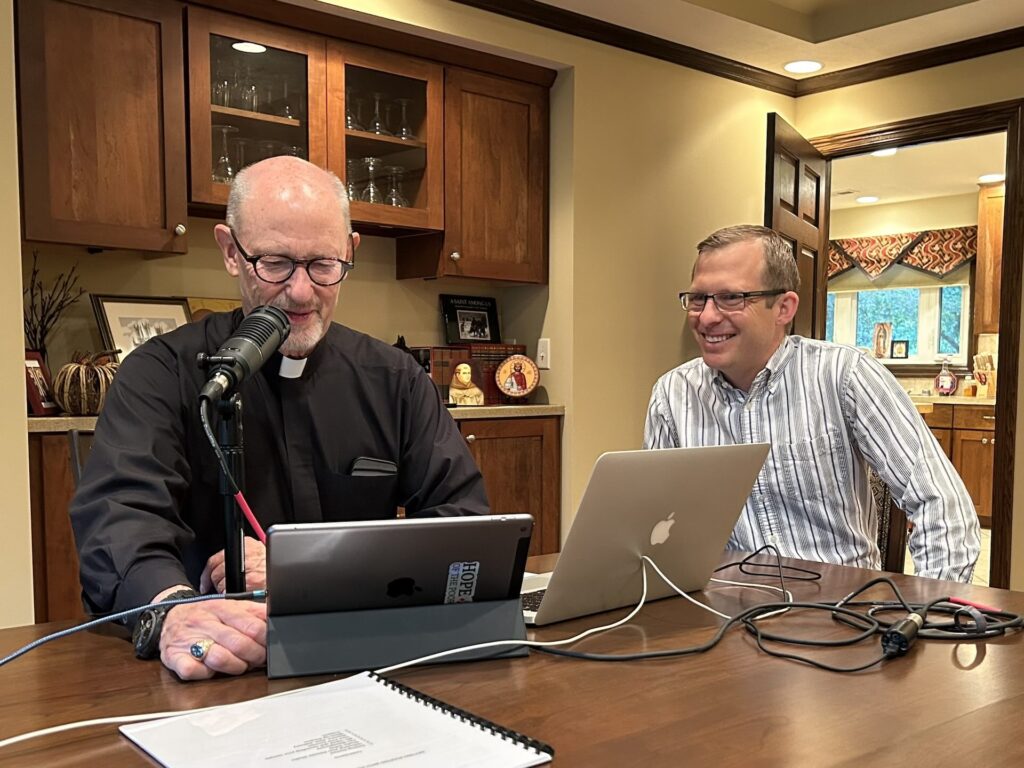So as an Orthodox Christian, I see the papacy and the documents of the early councils. I just have a hard time reconciling it as it’s developed. And then all the insanity we see today. How can I work through it?
Yeah. Oh man. Great question. I have to tell you when I went through it, I jokingly said I had my Orthodox period, which didn’t last very long.
Because the Pope got in the way when I studied the early councils. There was just no doubt there’s so many things we can look at, Pope Celestine at the Council of Ephesus, for example, and then, of course, the great Leo the Great at the Council of Chalcedon and not only was Celestine, of course, acknowledged to be the supreme authority of the church at the Council of Ephesus and Leo there, but Council of Ephesus . . .
When you read the famous letter of the Patriarch of Constantinople, let me just share this real quick. Our Orthodox friend probably knows about this, but at the council and after the council, there was a controversy because a lot of folks don’t know this, but Pope Damasus never ratified Constantinople, right?
In 381. And why? Because the Patriarch of Constantinople attempted to leapfrog over the apostolic patriarchates, not Rome, because Rome was understood by everyone to be number one at Constantinople, but the Patriarch wanted to be number two, Deuteros. You read that in the, at the council.
And Pope Damasus said ain’t gonna go there. Why? Because you have Antioch and Alexandria and Jerusalem, which are apostolic patriarchates, and I’m sorry, Constantinople isn’t. And so you’re not going to leapfrog over those. And so Damasus never ratified the symbol the creed from Constantinople or the the council itself.
And everybody knew that East and West, but at Chalcedon with the Christological controversies, and of course, Leo the Great declares the truth in the famous Tome of Leo, which I recommend folks to read. It’s just a beautiful document. It’s not that long, but it’s absolutely rich where he declares the truth on the nature of Christ and the Council of Fathers erupt and say, Peter has spoken through Leo, the matter is at an end.
The patriarch of Constantinople writes a letter to Leo. And when you read it, it’s quite beautiful. He says, I speak as a son to a father, and he’s basically begging the Holy Father to ratify not only Chalcedon. But also Constantinople and the symbol of Constantinople, which just when I first saw that 30 plus years ago, it was like, oh, my gosh, the whole world understood you don’t have an ecumenical council . . . you don’t even have the symbol of faith as it was defined there at Constantinople apart from the pope. And so when I saw that, I’m oh, my gosh. Now to, to my Orthodox friend here to answer your question, we have to understand that when the Pope speaks definitively, and in the case of ratifying the council, that’s an infallible act, people forget that.
There’s no infallible teaching in the church apart from the Pope. A lot of people say it’s only spoken infallibly twice. Oh my goodness, that’s crazy. No, every single infallible teaching of the church has as its foundation, a pope, the exercise of the Petrine ministry, whether it’s ratifying a council or even in the case of universal and ordinary teachings of the magisterium that are infallible, you have to have the pope. Otherwise there’s no infallible teaching. But that doesn’t mean, and this is one that we have to understand folks, that everything the pope says is infallible, right? You do not have to agree with everything the Pope says at 35, 000 feet on an airplane, right?
Now we could get into some of the minutiae and talk about, I think some of the stuff going on today is crazy, attacking Pope Francis in ways that it’s blowing my mind because I don’t find a single, I don’t have a single problem with any magisterial teaching of Pope Francis. I actually love the magisterial teachings of Pope Francis, and I think he has a lot of incredibly good things to say.
And we have to be careful because we need to understand that we have to give religious assent even to non infallible teachings of the magisterium, not just, the divine and Catholic faith that we have to give to the infallible ones. But I think the answer to your question, I think to a great extent is, I think I’ll put it this way.
In some ways, were the victims of what I call the curse of Pope Saint John Paul the Great, right? Because he was such an extraordinary pope. He wrote on everything and he was so incredibly erudite. And, not that people didn’t criticize him either, as I recall, the Assisi prayer gathering and kissing Quran and all of that, which I think people went a little overboard on some of that too.
But the point is, this man was so extraordinary, one of the great popes. Definitely top 10 in the history of the church that I think people have come to expect every pope is going to be John Paul the Great. Brother, that ain’t gonna happen, right? You’re not gonna have every pope being even Benedict, the brilliance of Benedict, the incredible holiness and brilliance of John Paul.
So when Francis You know, says some things on airplanes where he’s not exactly clear and folks, we need to lighten up and understand you listen respectfully, right? And respectfully is important, but make the distinctions as my philosophy professor. Dr. Lowry at St. Charles Borromeo used to say distinctions.
You have to make a distinction between the definitive teachings that we must give, what Vatican one defined as divine and Catholic faith. That means if you reject that, you’re going to hell right on the objective level, right? You’re committing sin that is on the objective level. Grave matter.
Now, of course, there’s always the judgment is left to God, but the point is you’ll lose your soul. If you knowingly reject definitive teaching of the church opposed to look, if you struggle with the Pope’s emphasis on, let’s just say climate change, for example, that is not a definitive teaching of the church.
That’s not even matter that could be definitive teaching of the church. It’s a matter of science. And so people can respectfully disagree with the holy father on a matter like that, but make the distinctions, my friend.





